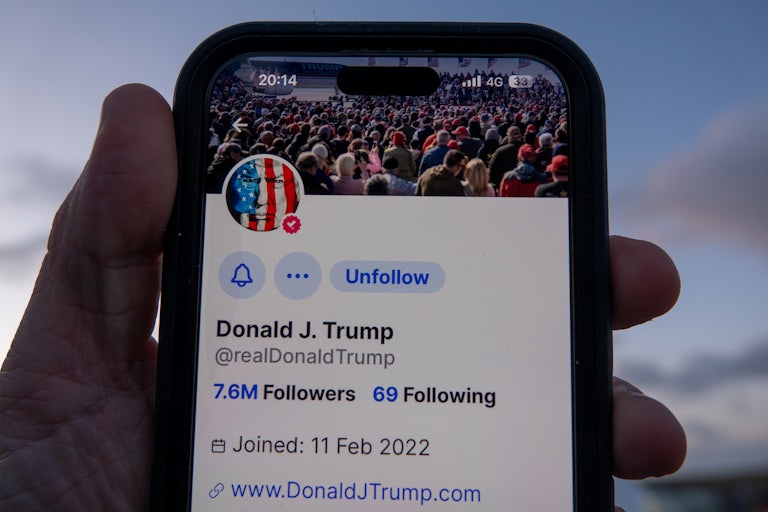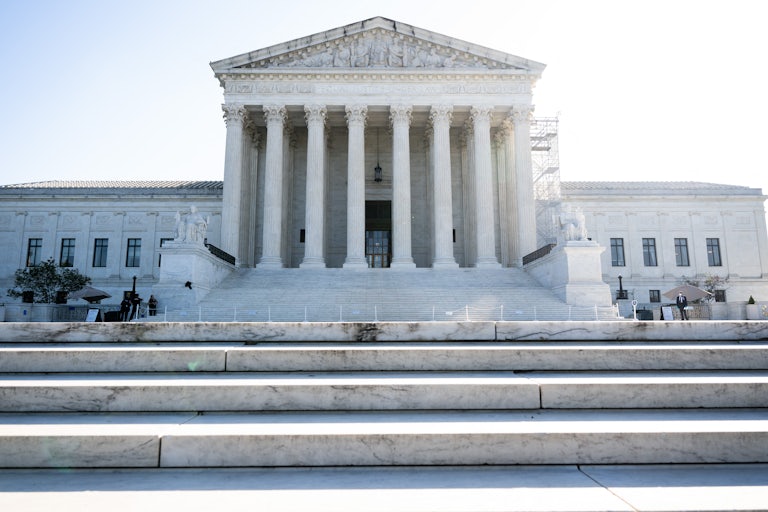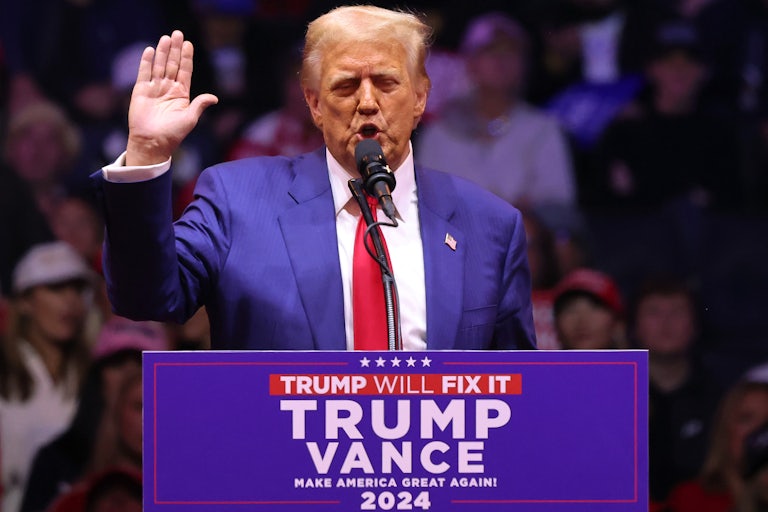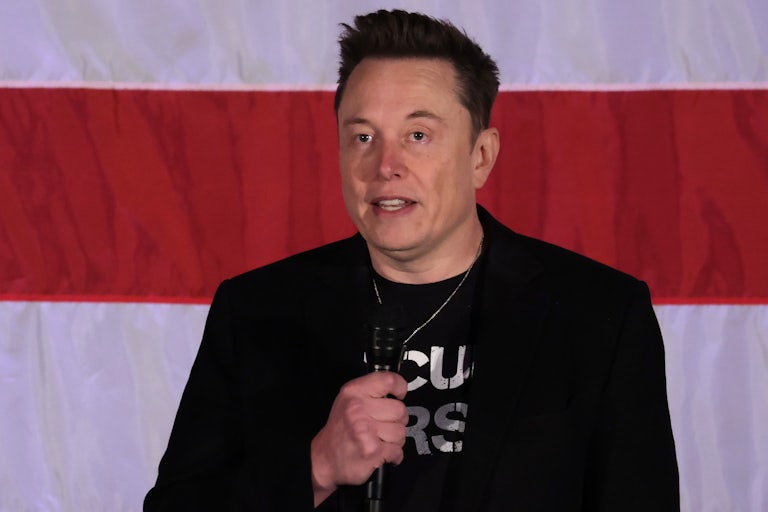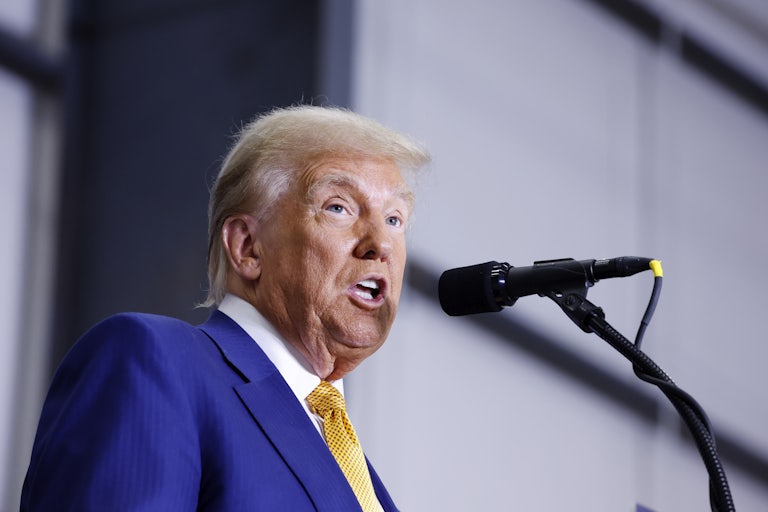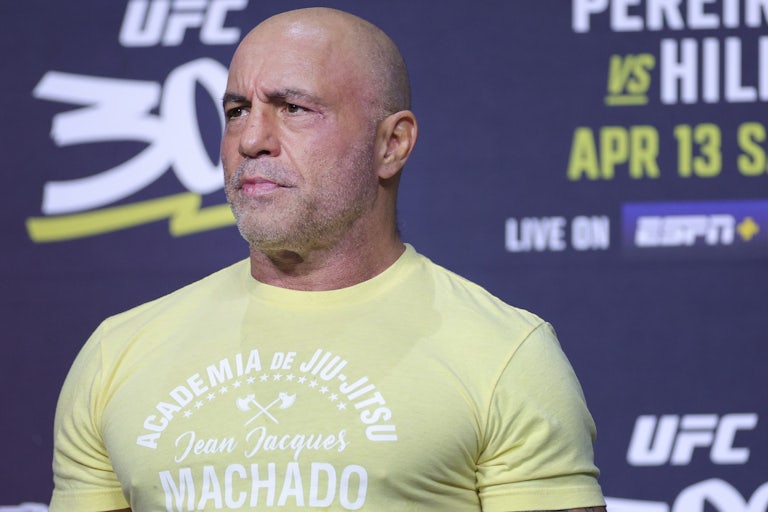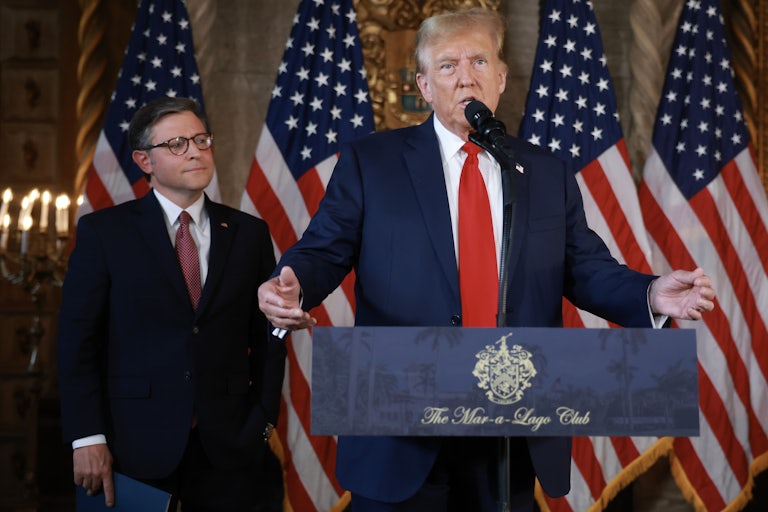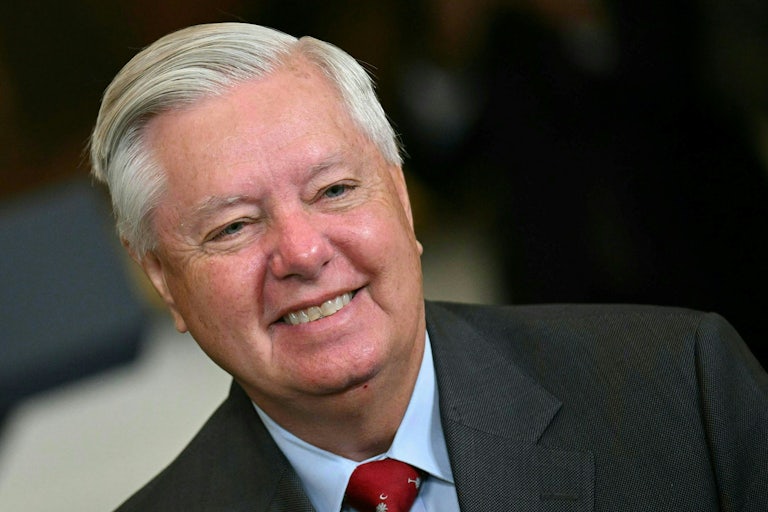Trump Scores Major Win Against Jack Smith’s Authority
Donald Trump continues to chip away at Jack Smith’s ability to hold him accountable.
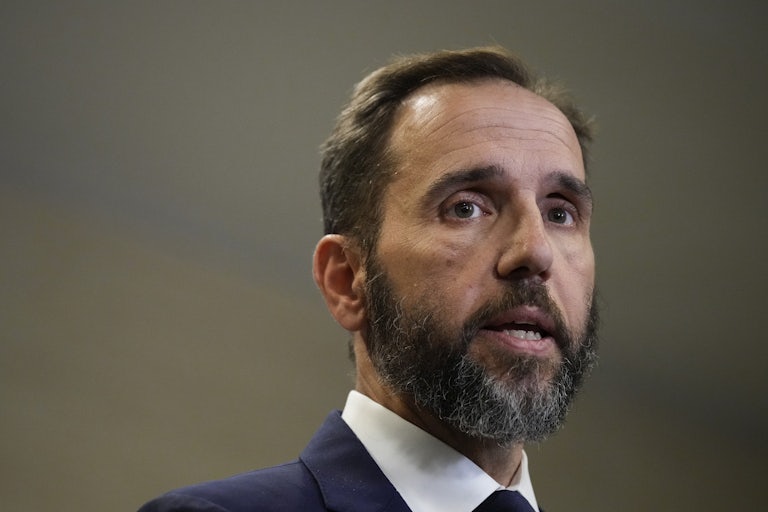
When Hurricane Milton hit Florida nearly three weeks ago, the Category 3 storm ravaged the coastline and created a record number of tornadoes—at least 41—inside the Sunshine State. At least 24 people died from the storm, and more than three million people were left without power.
But the hurricane also devastated things even far outside of its reach: namely, Donald Trump’s legal defense in his January 6 case.
On Monday, Judge Tanya Chutkan granted a motion to extend deadlines in his January 6 trial by several weeks after Trump attorneys Todd Blanche, Emil Bove, John Lauro, and Gregory Singer claimed that Milton had “severely” affected their ability to stick to the previous schedule. The legal team did not specify exactly how they were affected by the southern storm but wrote in a footnote that they would elaborate under seal if required by the judge, claiming that the “personal details” of the reasoning were irrelevant to the public.
“Specifically, the impacts of the hurricane, which remain ongoing for certain counsel, have substantially slowed progress on the Response,” the filing said. “This, in turn, has limited counsel’s ability to thoroughly consider the Court’s extensive classified and unclassified discovery order and prepare an appropriate Motion to Compel.”
Chutkan noted that special counsel Jack Smith’s office did not oppose the request.
The decision moves the Trump team’s November 7 deadline to submit several legal filings, including a motion to strip “immunity-related discovery” from Smith as well as an argument that Smith was unlawfully appointed, to November 21. It also moves briefings on the immunity issue from December 5 to December 19, apparently also based on Hurricane Milton’s disruption.
Earlier this month, Smith’s team released an eye-opening report that included revelations about Trump’s behavior ahead of and on January 6, outlining what Smith described in the redacted document as Trump’s “private criminal conduct.”
“At its core, the defendant’s scheme was a private one,” prosecutors wrote in the massive motion. “He extensively used private actors and his campaign infrastructure to attempt to overturn the election results and operated in a private capacity as a candidate for office.”
The motion was broken into four separate sections: The first section outlined Smith’s case against Trump, while the second offered a road map to aid Chutkan in determining which actions undertaken by Trump were considered “official,” in light of a July Supreme Court ruling that redefined executive protections by expanding the definition of presidential immunity.
The third section of Smith’s motion tied in how the principles will apply to Trump’s case, and the fourth section featured a conclusion requesting Chutkan rule that the actions outlined in the entirety of the document do not fall within the fresh definition of immunity.
The Supreme Court handed Trump one of the biggest wins of his career in July, when they ruled 6–3 to expand a president’s immunity and redefine what constitutes an “official act,” effectively deciding that Trump could not be held accountable for some of his behavior with regard to attempting to overturn the 2020 presidential election results.
In a dissenting opinion, Justice Sonia Sotomayor feared for the future of a country that legally permits the executive branch authority to commit crimes under the cloak of the office, arguing that the court’s decision made a “mockery” of the constitutional principle that “no man is above the law.” She warned that the court’s “own misguided wisdom” gave Trump “all the immunity he asked for and more.”
Trump has been charged with four crimes in the election interference case: two related to the disruption of Congress’s certification of votes, one for Trump’s alleged scheme to defraud the U.S. via disrupting the collection and certification of votes, and a fourth for the conspiracy to deprive citizens of their right to vote.
